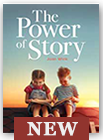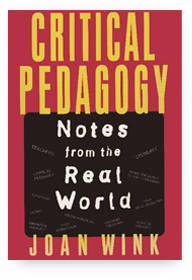What is sheltered content instruction?
The following true experience was written several years ago by Le Putney when she was in the Multilingual Masters’ program at CSU Stanislaus. I think the story has stood the test of time. Enjoy.
The class had already started when I walked into the room. I wondered if I was in the right place. I was only 2 minutes late, but already the students had some papers on their desks, and the teacher had given them some directions. I wondered what I had missed. I quickly realized that I would not have understood them anyway since he was speaking a very funny language, one that I did not recognize, not even one word.
He seemed to be a nice man. His tone was pleasant sounding and he smiled when I walked in and nodded to a chair. I took the seat and someone shuffled a set of papers my way. I gratefully took them and tried to be inconspicuous as I put my bag on the floor. I watched this teacher as he pointed to the picture in the book he held up for us all to see. Of course, it was a small book and I was sitting in the back row so it was sort of hard to see what he was pointing at. I realized that I had a black-and-white copy of the same book in front of me. The words looked very strange. I could not read them.
So let me see if I can figure this out. It looks like a picture of a girl and a dragon. I know about dragons. They lived in olden times when there were kings and queens and knights. The knights often tried to slay the dragons, but the dragons were powerful and they could fly and breathe fire. They must have been scary creatures.
The teacher was working a puppet of a dragon. He was reading from the book and then he would make the dragon roar. I wondered why he was doing that, but I thought it must have something to do with the story. Then the teacher wrote something on the board. Oh, numbers. Yes, I would be able to deal with numbers. There was a 10 with a word next to it, but I didn’t recognize the word. Then he pointed to the 100 and another word. I couldn’t figure out what he wanted us to do with the numbers. I knew how to add and subtract and I was pretty good with figures, but this was a story we were reading and I did not know what the numbers had to do with what he was reading.
Ok, so there are some numbers. So what about those stupid numbers? Am I supposed to know what he is doing with them? It may have something to do with dragons because he keeps playing with the puppet and pointing to the numbers. Were there now 10 dragons, then 100 dragons? Oh I don’t know what he wants us to do with the numbers!
I felt my body beginning to stiffen. I folded my arms across my chest and pursed my lips. I felt my face beginning to burn with embarrassment. It was turning red and I didn’t know why. I did know that I was not understanding much of this, but everyone else was sitting forward in their seats, smiling and nodding their heads.
Stupid story, what about the dragon, what about the numbers? And why is that girl wearing a paper bag instead of a dress? Who is she, and why should I care anyway? I must be really stupid because I don’t get any of this. Why is everyone else looking like they are having fun with this story? I wonder how long this will go on. We don’t seem to be very far yet. Is he going to read the whole book? Will he realize that I don’t understand any of this? Maybe I should just nod my head like the others and pretend that I understand it all.
I did not nod my head, pretending to understand. Instead, I started slumping down in my chair with my arms still folded in front of me. I was turning redder in the face, and I realized that it was no longer an issue of embarrassment. Now I was getting mad. I wondered how much longer they would all go on with this story and not help me understand what they were saying? Couldn’t they see that I didn’t understand?
I want that teacher to see me, to notice that I am not going to pay attention anymore to his dumb story. Who cares about that stupid dragon anyway? I wonder if the ceiling has anything interesting on it to look at? Oh yes, I can count the dots in the ceiling tiles. That is something I can do; I can count in my language, but not in theirs. When will this class be over? Why didn’t they let me go into the nice Spanish teacher’s classroom? I could understand what she said to me; not every word, but most of the words. Those words are friendly to me, these words are not friendly. Maybe I could just sneak out and down the hall to the friendly classroom.
Suddenly the class was over. Everyone got up and some of them went to talk with the teacher. They were all smiling and chatting, using those new words they had learned. They didn’t even notice me so I ran out the door and down to the room where I knew the Spanish teacher was. Everyone there was sitting on the floor when I sneaked in. She looked up, smiled, and kept right on talking as I sat on the floor next to another student. They were looking at the same book, and there was the part about the numbers and the dragon.
Oh, I get it. The girl challenges the dragon to make an even bigger fire. He makes a bigger fire come from his mouth. She challenges him again, and once more, he makes such a huge fire that he burns himself all out. Then she goes into the cave and saves the life of the prince. But this prince is not very princely! He tells her to go and get herself cleaned up so that she will look like a real princess. She tells him that next time he can just save himself, and she goes off without that silly prince. Hey, I like this story. I wish I had read it first in Spanish or English so that I could have understood it. This is so much better. I understand it now. It’s not a stupid story at all, it’s a story called “The Paper Bag Princess”.<
I was relieved to actually understand something that was going on with this story. Spanish was not my first language, but at least it was one that I understood, unlike the Swedish class I had just been in. My friend, Joan, came over afterwards and asked me what I thought of the lesson. I told her that I was so happy that I came to hear the story in Spanish, because in Swedish I was just getting plain angry and confused! I hated that story when I didn’t understand any of it. How could I have known how angry that would make me?
This was not the story of a young, immigrant child struggling in a classroom setting. This was the story of an adult. I was a graduate student at the time, fluent in two languages. I knew that I would not know all the words in Swedish, but how hard could it be to read a children’s book in another language? The words should be easy enough, and it certainly was not an academic piece. Yet I had no idea that I would encounter so heavily the shame, the anger, and the opposition to learning that I experienced in that “sheltered” Swedish classroom. The teacher was doing all the right things, according to the literature. He was well-meaning, he used visuals, he asked the questions in a variety of ways and encouraged us to talk. The one thing he did not do, was to watch the faces and body language of his students to realize that one of us was not smiling, not leaning forward with anticipation of the next page. One of us was slumping down in our chair, refusing to learn. One of us was resisting all of his attempts to make the language more comprehensible, because nothing was getting through.
In a debriefing after this exercise, I expressed my pain and anger at being left out, at being left alone to try to decipher his words. The others could not understand why I was so slow to catch on. I asked if they had ever heard of the story before. Of course they had, they were all elementary school teachers, and every one of them had already read the book many times to their own students in English. They already had the content in a language they understood. I, on the other hand, only had a puppet, some numbers, pictures, and words on a page that made no sense to me. I could not make meaning from their language at all under those circumstances.
Did I survive being in that classroom situation? Of course I did. Did I come out of it unscathed? No. Several years, a Master’s degree, and a Ph.D. later, I can still recall the sense of rage I felt at being talked at in a language I did not understand. I can remember “watching myself” becoming more sullen, angry, then exhibiting oppositional attitudes toward the book, the teacher, and the other students. I was angry because they were understanding it and I was not. This was not like me, but then, not understanding anything at all was not part of my usual studenting experience. I can still recall the sense of relief as I sat in that Spanish classroom, with people speaking my second language. No, I did not understand everything that was being said in that classroom either. But, I did have a tool, a language that I understood, for making sense of that story. Having some understanding was measurably better than having none at all, and I could feel it in my entire body as I calmed down and began to relax into the story.
As I acted this scenario out for graduate students in the current setting of my university classroom, the teachers in my class understood my frustration. They had seen that look on childrens’ faces in classrooms where the students were not yet English fluent. They had studied the sheltering techniques that had been used on me in that frustrating setting. “But Dr. Putney, they said, “This is how they taught us to work with students who do not speak English.” I reminded them that sheltering is only one technique to further a student’s understanding, and sometimes it is just not sufficient for all students who are desperately seeking understanding. The students working toward their degrees in my class vowed not to do the same thing that teacher did. They vowed never to just continue teaching without taking notice of the student being talked at in a language that was incomprehensible to her. They vowed to do better in their own educational spaces. That was my purpose for sharing my story with them.






